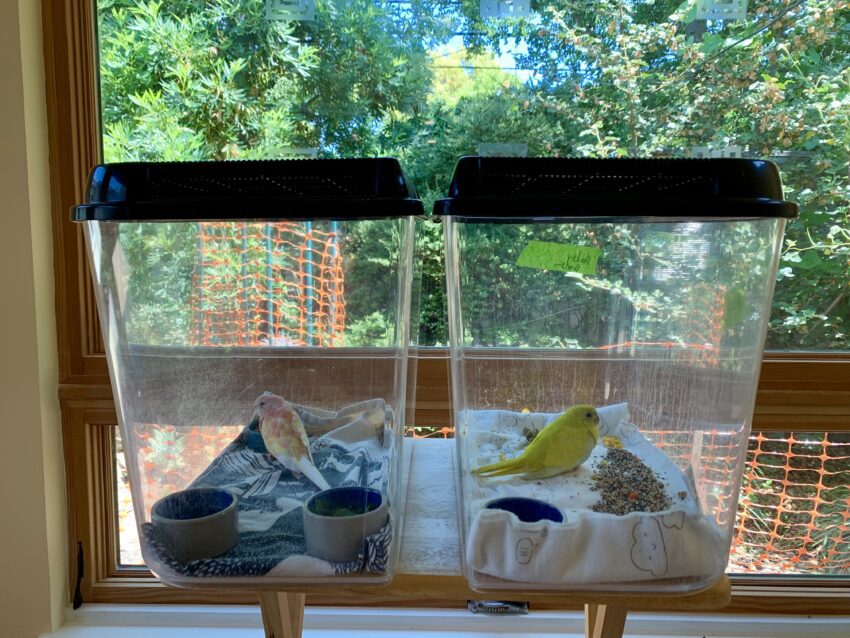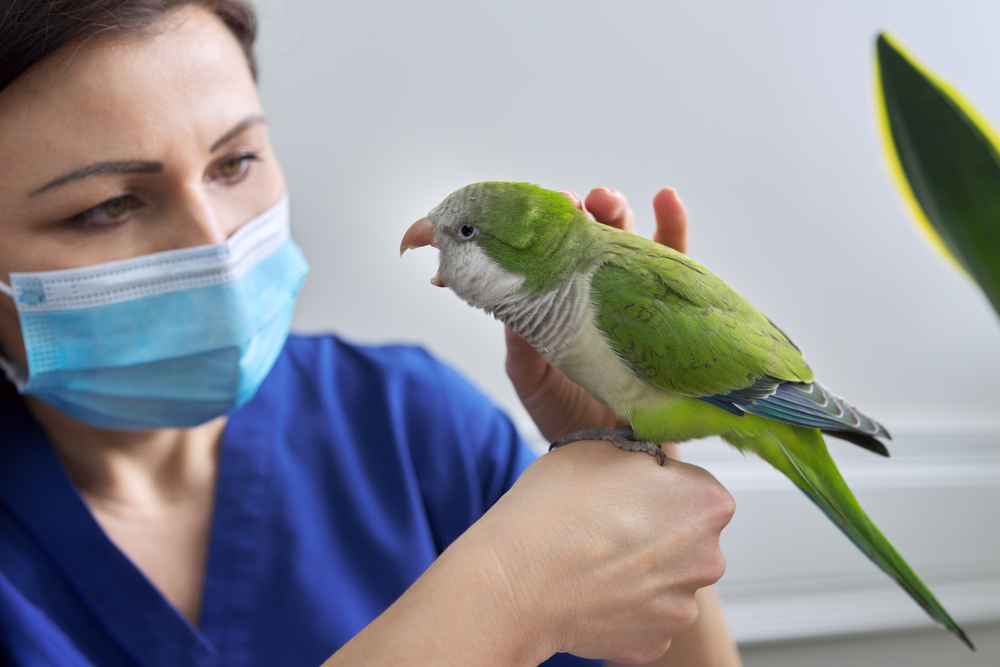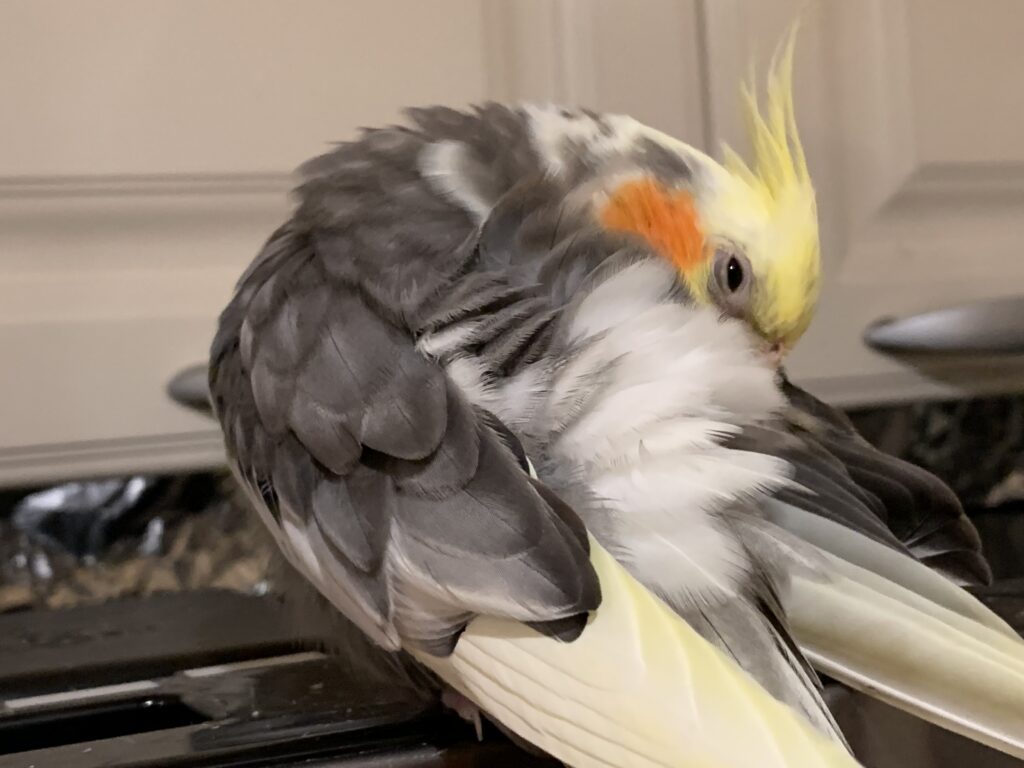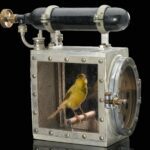
Be prepared should your parrot become ill
This article is not intended to help you diagnose your bird. For that, I highly recommend this excellent PDF on recognizing illness in pet birds. This article is a good resource of information on bleeding.

People don’t like to imagine that their parrots could get sick or even die someday, so they put these thoughts out of their minds. But being unprepared means you’ll be more likely to panic or make poor decisions should something arise. This can lead to unnecessary suffering for everyone involved.
If you’re not prepared, your instinct may be to rush your bird to the vet at any sign of a problem. In addition to being expensive, a visit to the vet is very, very stressful for any pet, and a bird is no exception. Stress can worsen or cause illness, so you want to be sure it’s worth that risk.
Here are some specific things you can do to prepare yourself for the day you hope never comes.
Get an initial checkup at a vet
If you’ve never brought your bird to the vet, you should strongly consider it. We all know vets can be expensive, but a simple physical exam can be below $100 (without bloodwork), but here’s what that investment could get you long-term:
- Your bird may have a condition in its early stages that you haven’t noticed yet. Catching it early is going to save you money later on.
- Setting up a relationship with a vet may give you access to them for advice without bringing your bird in. Vets are sometimes happy to answer questions via phone or email for existing patients.
- A vet can teach you what signs of illness to look for with your bird right in front of you.
- Some vets will not see urgent or emergency cases for people that have not yet established a relationship.
- Your vet can give you advice on who to contact after hours should you need urgent care.

Observe your bird regularly
Every bird owner should spend at least a few minutes each day doing a careful inspection of their birds . Over time, you’ll learn what “normal” behavior is for your bird and this will assist you in identifying problems. It’s common for bird keepers to become distressed when they notice a concerning behavior when it’s actually just something they’ve never noticed before.
Observe their physical features like nostrils, vent, and eyes. Take note of behaviors like breathing, alertness, and posture. Over time, look at their poop frequency, color, and consistency. These are all just examples and not an exhaustive list.
An excellent way to establish a baseline is by taking photos and videos of your bird with your smartphone. Then, if you see something concerning, you can refer to your phone to see whether the behavior is new or not. I’ve also written an article about how security cameras can be a great way to observe your birds when you are not around.
Gather basic supplies
There are some basic items you should always have on hand should your bird get sick. There are more comprehensive “first aid kits” you can buy that go beyond the basics.
You want to have styptic powder (or equivalent) on hand should your bird ever start bleeding. Corn starch is a good substitute that you may already have on hand.
You should have some sort of small enclosure ready, like a hospital cage, plastic bin, cardboard box, or bird backpack. A sick bird benefits from being in a quiet, dark(er) place and it’s a good way to keep a closer eye on them. And heat has amazing healing properties, so I recommend having a heating pad on hand too.
Now, if you need to go to the vet, your bird is all packed up and ready to go! Keep everything mentioned in this section in a location you can remember easily.

Have important information written down
Be sure to have your vet’s phone number easily accessible as well as their business hours and address. The same goes for an emergency vet, if you have one, or any alternative vets. Have important online resources already bookmarked.
Having this information in a smartphone is fine, but think about cases when you may not be around when a problem arises. Having this written down and stored near the bird’s cage could be invaluable.
Learn about basic bird behavior
If you’re a new bird keeper, there are many bird behaviors that are sometimes mistaken for problems. It can give you peace of mind to understand these behaviors so that you don’t panic when they happen.
There are a lot of online resources on bird behavior, but they tend to miss important behaviors or scare you into thinking everything is a reason to head to the vet. One of the best I’ve found, though, is this guide on reading bird body language.
There are many bird behaviors that are species-specific and I think the best way to discover these is to purchase a book targeted for your bird, whether digital or on paper. It’s very rare to find good, comprehensive bird guides on the internet available free, so you likely will have to spend a bit of money.
YouTube (or any searchable video service) can be an excellent resource to learn bird behavior as it can be so much easier to show something than to describe it in words.

Conclusion
It may be uncomfortable to plan for unpleasant situations but once you get past that, you’ll probably feel better being prepared.




